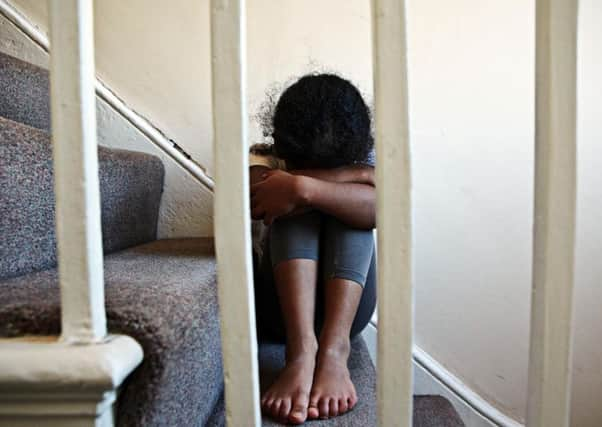Children living in poverty twice as likely to be lonely


A study into children’s loneliness by the Office for National Statistics (ONS) also found children’s happiness with their friends had the greatest impact on whether they felt lonely, and those living in cities were more lonely than those living elsewhere.
But it was the link between loneliness and poverty that was most striking - outweighing other factors such as age and gender - with one 15-year-old telling researchers: “When [children] don’t have the stuff that other kids may have. Like for example a new pair of trainers might come out, people might want to get it, they can’t get it, they’ll feel alone; like why can’t I get this, why can’t I get that?”
Advertisement
Hide AdAdvertisement
Hide AdA child’s sense of autonomy also affected their loneliness, with those with low happiness at their amount of choice four times more likely to be lonely than those with ‘very high happiness’ with their amount of choice.
Youngsters who had low levels of happiness with their relationships with friends were seven times more likely to be lonely.
The Yorkshire Post has been campaigning to highlight the ‘hidden epidemic’ of loneliness since 2014.
The ONS’ study built on its previous research, which began after the Prime Minister launched the Government’s Loneliness Strategy last autumn, which showed that more than one in 10 children aged between 10 and 15 described themselves as feeling lonely “often”.
Advertisement
Hide AdAdvertisement
Hide AdONS statistician Dawn Snape said: “Loneliness is an issue of growing importance to many organisations and policy-makers. Our findings show that the type of area where a child lives and relative poverty are both important, but this research also highlights that the child’s perspective of their situation is a significant contributing factor to loneliness.”
The Children’s Society, whose data the ONS research was based on, said “so much more could be done” to make sure loneliness does not disproportionately affect the poorest children.
Policy manager Richard Crellin said: “It’s really important that schools think carefully about how to support children living and families in poverty - for instance, by ensuring they can participate in school trips and charity fundraising, that uniforms are affordable and by having cashless systems for school dinners to reduce stigma for those receiving free school meals.
“We know councils are under financial pressure but it’s vital they consider carefully how cuts to youth services, green spaces and children’s centres will further isolate the poorest children - and we are calling on the Government to address the £3bn shortfall facing children’s services departments by 2025.”
Advertisement
Hide AdAdvertisement
Hide AdHe added: “Feeling left out and not having anyone to talk to can mean loneliness can be a vicious cycle and young people told us how hard it was to break out of being lonely. The damage loneliness does to children’s well-being may also be a factor that makes them more susceptible to issues like mental ill health and even grooming, although more research is needed.”
Last year Childline delivered 4,636 counselling sessions – the equivalent to 12 every day – to children and teenagers suffering from loneliness, a 14 per cent rise from the year before.
An NSPCC spokesperson said: “In an age where the internet is allowing children to connect with other young people all over the world, it is sad irony that more and more are struggling with feelings of loneliness, especially those living in cities and more difficult circumstances.
“We know from Childline that children are increasingly seeking support about feeling alone. They tell our counsellors that social media pressures, bullying and mental health issues are also contributing to their sense of isolation.
Advertisement
Hide AdAdvertisement
Hide Ad“It’s crucial that children are able to talk about their problems and that adults look out for signs of these feelings before it damages their physical and mental health.”
Jim Cooke, head of the Co-op Foundation, which supports projects tackling youth loneliness, said the report backed up its own research that shows young people who feel they struggle to ‘fit in’ with their peers or who come from lower income backgrounds are more likely to feel lonely.
He added: “We can all do our bit to help young people feel like they belong, starting with tackling the stigma of youth loneliness.
“Four out of five young people say a fear of people’s reactions is a barrier to talking about loneliness. By listening with empathy and by talking more openly, we can help young people build their confidence and skills to tackle the issue for themselves and their peer group.”
Advertisement
Hide AdAdvertisement
Hide AdA government spokesperson said: “Tackling child poverty will always be a priority for this government and we continue to spend £95 billion a year on working-age benefits to ensure every child has the best start in life.
“We know loneliness can have a huge impact on young people and that’s why our loneliness strategy has set out a number of ways to address this public health issue.
“We have dedicated £2 million from our Building Connections Fund to specifically tackle youth loneliness. Our #iwill campaign is encouraging young people to volunteer, and the impact of loneliness and the value of social relationships is now included in guidance for Relationship and Sex Education in schools.”